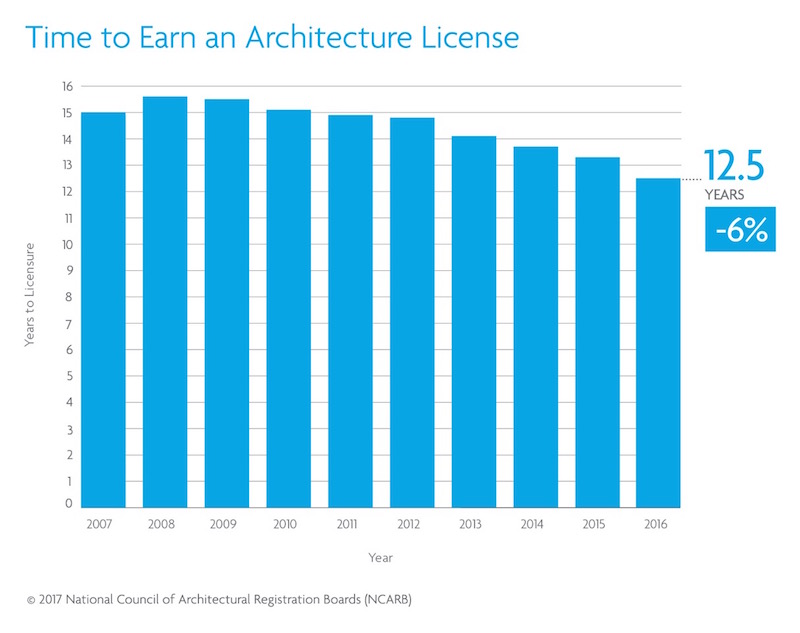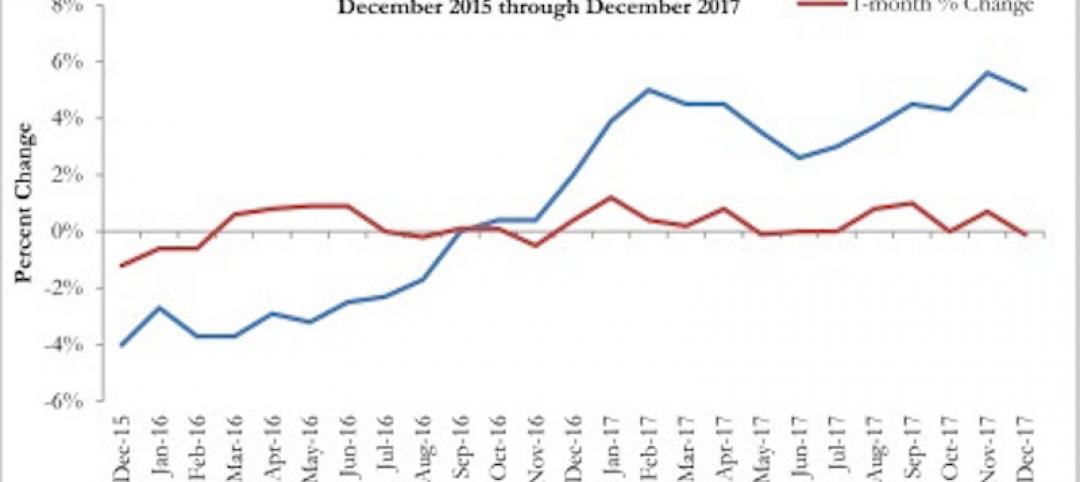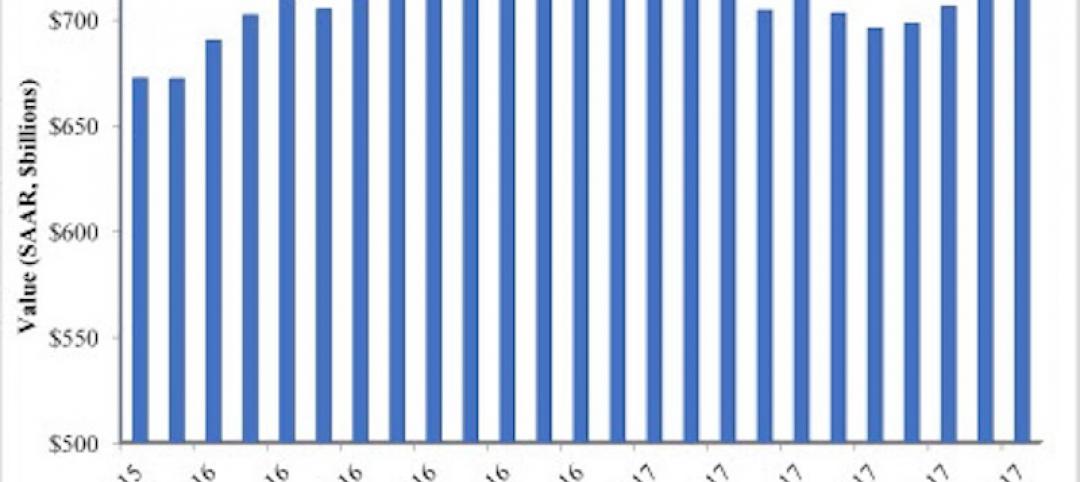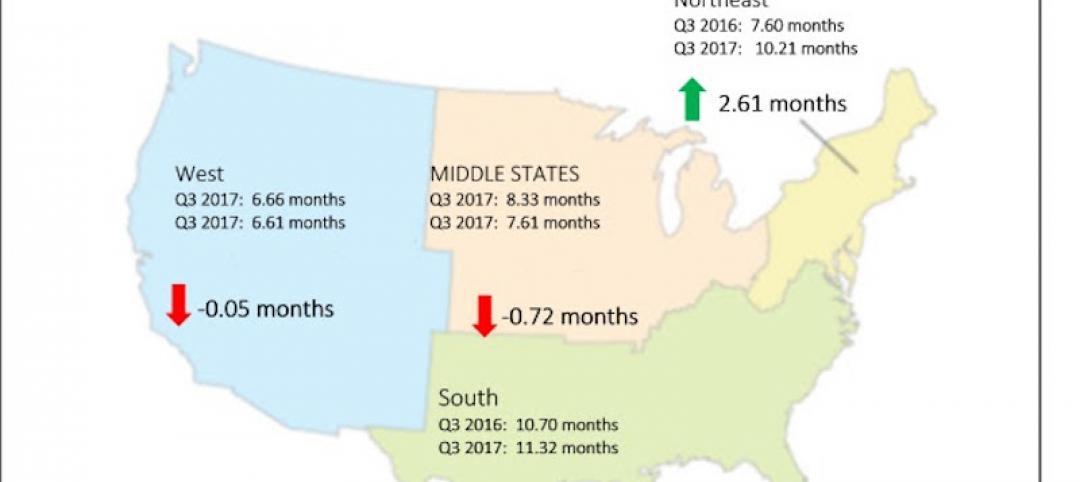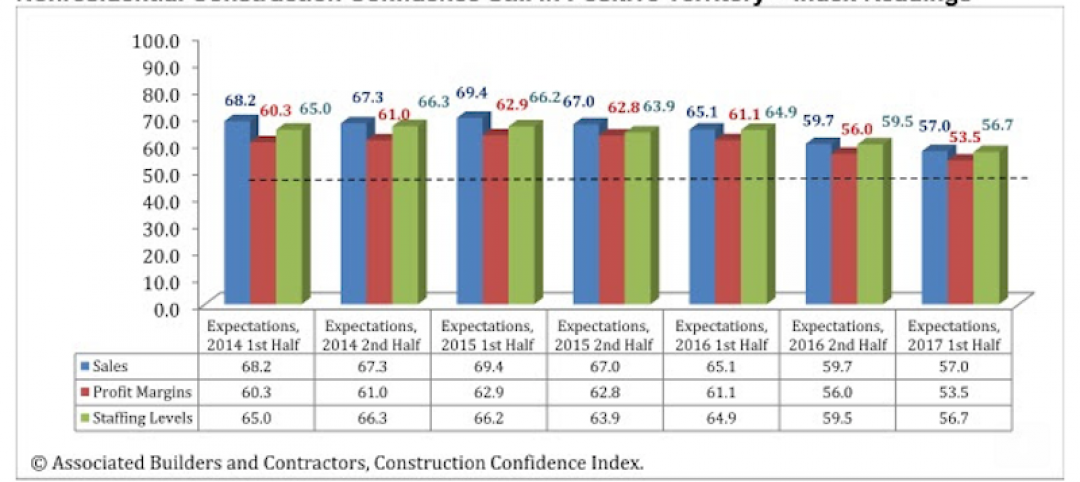The latest architect licensing data indicates that the time to become an architect has decreased to an average of 12.5 years—from the time a student enrolls in school to the moment they receive a license. This is the eighth year in a row that the timeline to licensure has shortened, according to data from the 2017 edition of NCARB by the Numbers. This trend is driven by candidates completing the experience and examination programs concurrently and more quickly.
Released annually by the National Council of Architectural Registration Boards (NCARB), NCARB by the Numbers provides exclusive insight into the number of U.S. architects, the pool of candidates working toward licensure, and diversity in the profession.
Over the past decade, NCARB has worked with licensing boards to streamline, update, and align two key pillars on the path to licensure: the Architectural Experience Program™ (AXP™) and Architect Registration Examination® (ARE®). These efficiencies have led to a reduction in completion times. Plus, newly licensed architects are increasingly overlapping these two programs. As a result, the time it takes to earn a license has gradually improved, with architects earning a license 9.6 months sooner than in 2015.
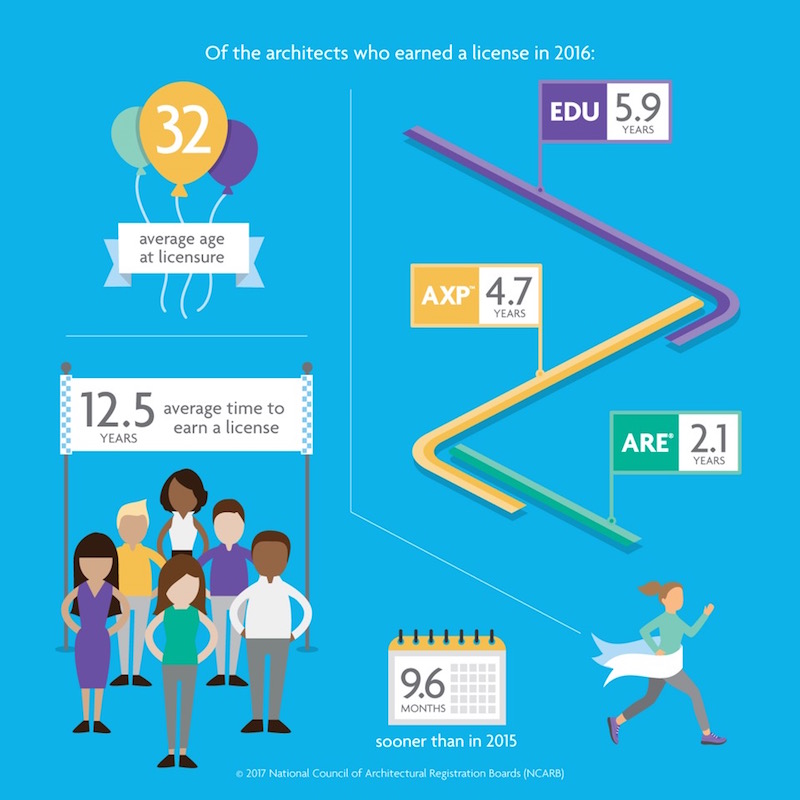
A closer look reveals that architects who earned an initial license in 2016 completed the AXP and ARE in just under six years. For comparison, architects licensed in 2015 took just under seven years to complete the two programs.
“By updating our programs to reflect the realities of modern practice, candidates can now pursue licensure in a way that ts their lifestyle,” said NCARB President Kristine Harding, NCARB, AIA. “With guidance from our licensing boards, NCARB has been able to open doors to a new pool of candidates while maintaining the rigor needed to protect the public’s safety.”
NCARB’s data also reveals that new architects are slightly younger. In 2016, the average age of a newly licensed architect was 32, an eight-month drop from the previous year. This marks the eighth year in a row that this benchmark has decreased, with architects earning a license 2.8 years sooner than a decade ago.
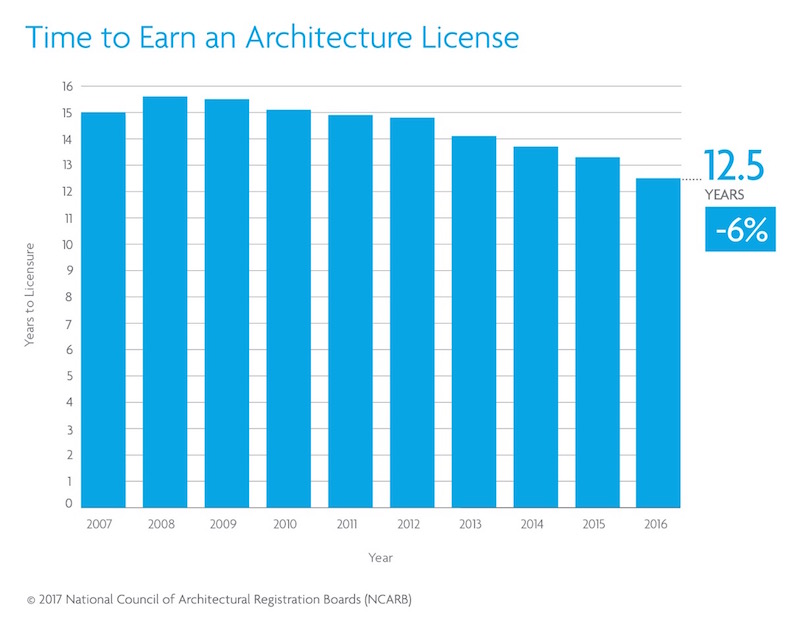
The full 2017 edition of NCARB by the Numbers will be available in July. To learn more about NCARB’s data, visit www.ncarb.org.
Related Stories
Market Data | Jan 25, 2018
Renters are the majority in 42 U.S. cities
Over the past 10 years, the number of renters has increased by 23 million.
Market Data | Jan 12, 2018
Construction input prices inch down in December, Up YOY despite low inflation
Energy prices have been more volatile lately.
Market Data | Jan 4, 2018
Nonresidential construction spending ticks higher in November, down year-over-year
Despite the month-over-month expansion, nonresidential spending fell 1.3 percent from November 2016.
Market Data | Dec 14, 2017
ABC chief economist predicts stable 2018 construction economy
There are risks to the 2018 outlook as a number of potential cost increases could come into play.
Market Data | Dec 11, 2017
Global hotel construction pipeline is growing
The Total Pipeline stands at 12,427 Projects/2,084,940 Rooms.
Market Data | Dec 11, 2017
Construction backlog surges, sets record in third quarter
CBI is a leading economic indicator that reflects the amount of construction work under contract, but not yet completed.
Market Data | Dec 7, 2017
Buoyed by healthy economy, ABC Index finds contractors upbeat
Despite rising construction labor and materials costs, 55% of contractors expect their profit margins to expand in the first half of 2018.
Industry Research | Nov 28, 2017
2018 outlook: Economists point to slowdown, AEC professionals say ‘no way’
Multifamily housing and senior living developments head the list of the hottest sectors heading into 2018, according a survey of 356 AEC professionals.
Architects | Nov 28, 2017
Adding value through integrated technology requires a human touch
To help strike that delicate balance between the human and the high-tech, we must first have an in-depth understanding of our client’s needs as well as a manufacturer’s capabilities.
Market Data | Nov 27, 2017
Construction's contribution to U.S. economy highest in seven years
Thirty-seven states benefited from the rise in construction activity in their state, while 13 states experienced a reduction in activity.


